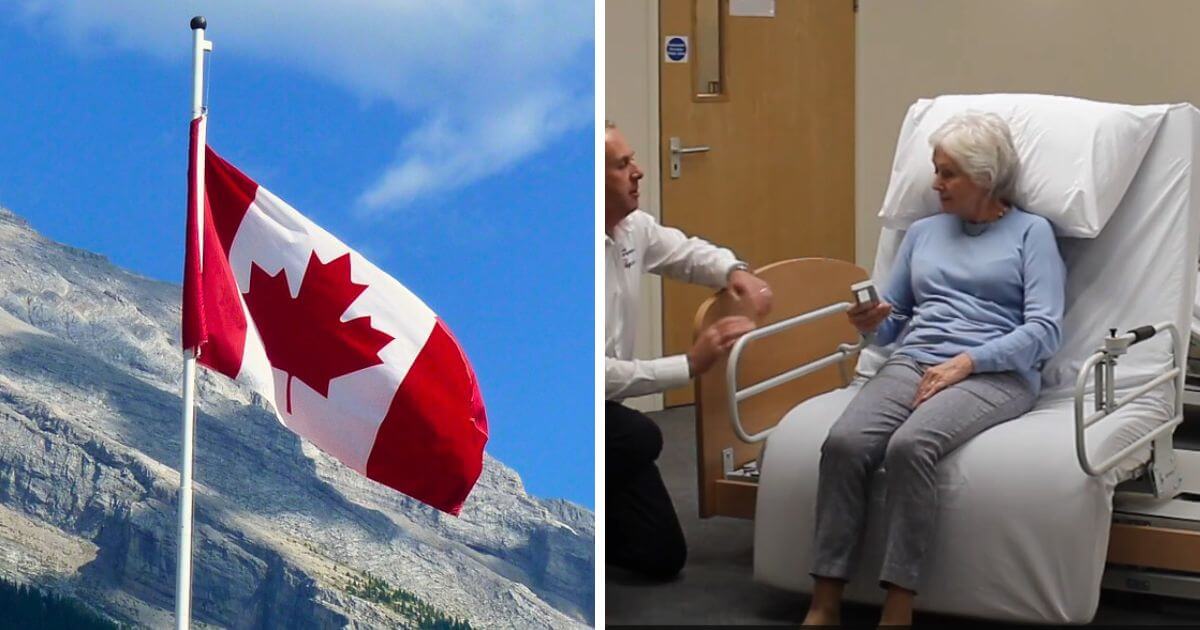Quebec has become the first province in Canada to permit assisted suicide or euthanasia for individuals incapable of consent at the point of death via an “advance request”.
As of 30 October this year, euthanasia and assisted suicide are now possible in Quebec for people “with a serious and incurable illness leading to incapacity (for example, Alzheimer’s disease)”. This means that an individual can consent to euthanasia or assisted suicide at some future point when that same individual “will no longer be able to consent” to ending their life.
These “advance requests” are different to “contemporaneous requests” where the person seeking to end their life consents to doing so “in the short term”.
Dr Catherine Ferrier, assistant professor of family medicine at McGill University, believes the policy of advance requests is a risk because the people who make an “advance request” may have later changed their mind if were they still able to do so. “There are huge gaps in consent, and that’s a big concern to me”, Ferrier said.
“As you come to terms with your disease, while you get used to the idea of not being able to do all the things you could do before, you’re still happy”.
“The whole idea of predicting what we might want a few years down the road is problematic”, she added.
Jurists told to ‘turn a blind eye’
Despite the fact that Canadian Health Minister Mark Holland maintains that these “advance requests” remain illegal under Canada’s Criminal Code, he will not pursue legal action to challenge the law, and Quebec’s Crown prosecution office has said in a directive that “it would not be in the public interest” to prosecute.
The scenario described by Dr Ferrier became a reality in the Netherlands in one shocking case after a lady with dementia made an advance request for euthanasia. At the time of her death, she was reported to be “confused” and wanted to live. Her family had to hold her down and she was euthanised by force. In the court case that followed, prosecutors argued the doctor did not properly consult with the 74-year-old patient. However, the doctor was acquitted of any wrongdoing by a Dutch court that ruled “all requirements of the euthanasia legislation” had been met. In April 2020, it was ruled that doctors in the Netherlands can no longer be prosecuted for carrying out euthanasia on dementia patients who have previously given written consent.
In Canada, the expansion of euthanasia laws has been rapid and widespread. In 2021, the Canadian Parliament repealed the requirement that the natural death of those applying for euthanasia or assisted suicide be “reasonably foreseeable”. This took place only five years after the original legislation allowing euthanasia and assisted suicide, which was passed in 2016.
Since then, the number of people ending their lives by assisted suicide or euthanasia has increased significantly. In 2022, the number of people who ended their lives by euthanasia or assisted suicide increased by 31.2% from the previous year, accounting for 4.1% of all deaths in Canada.
Legislation was introduced in February 2024 so that euthanasia and assisted suicide would become legal on the grounds of mental health alone in March 2027.
Spokesperson for Right To Life UK, Catherine Robinson, said “Quebec is committing a grave injustice to its residents by introducing this dangerous and deadly policy of allowing advance requests for assisted suicide, which only serves to put the lives of its vulnerable people at risk. It is disturbing also that the judiciary is completely failing in its duty to enforce the law”.
“UK MPs should watch these developments with great concern. It would be naive to assume that the same could not happen in the UK if Leadbeater’s reckless Bill is passed. MPs must vote against the Bill and call for greater investment and resources in palliative care”.












